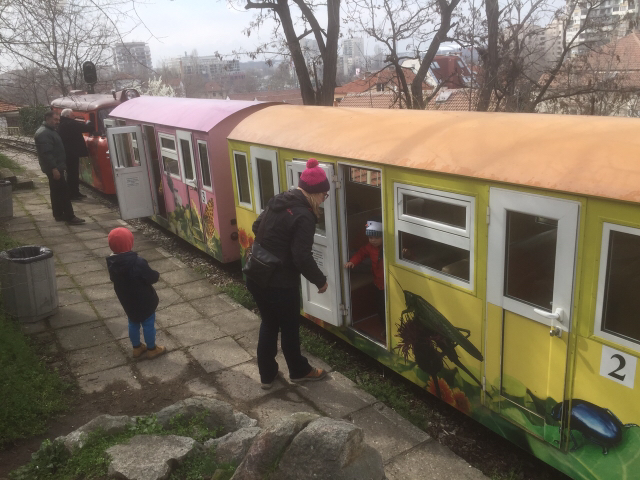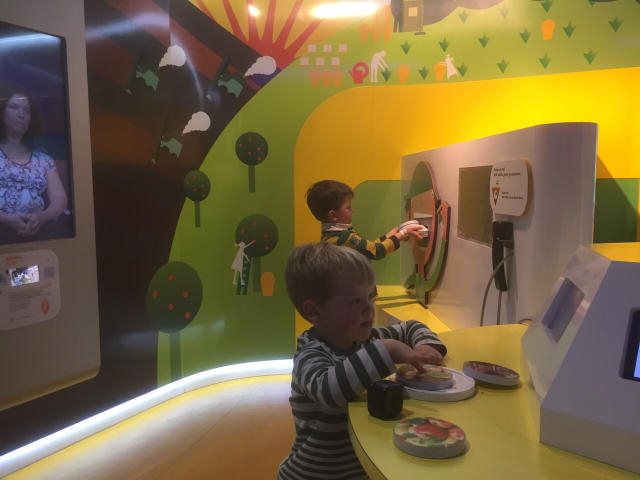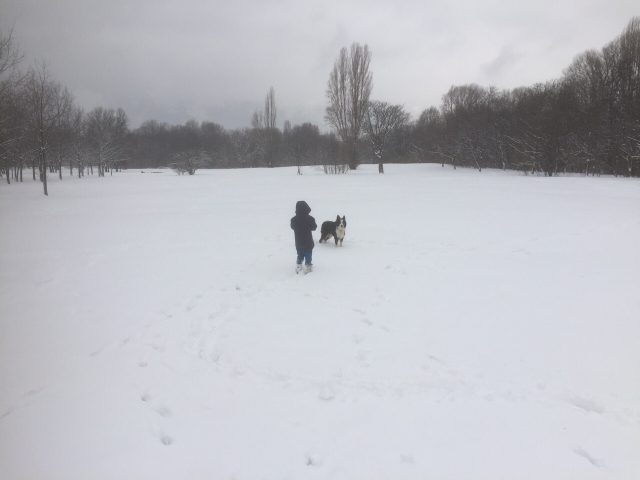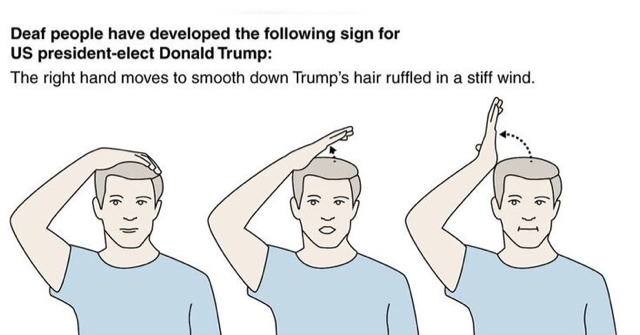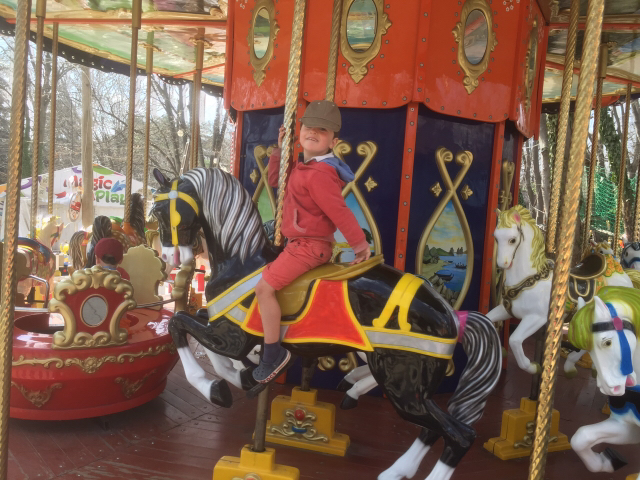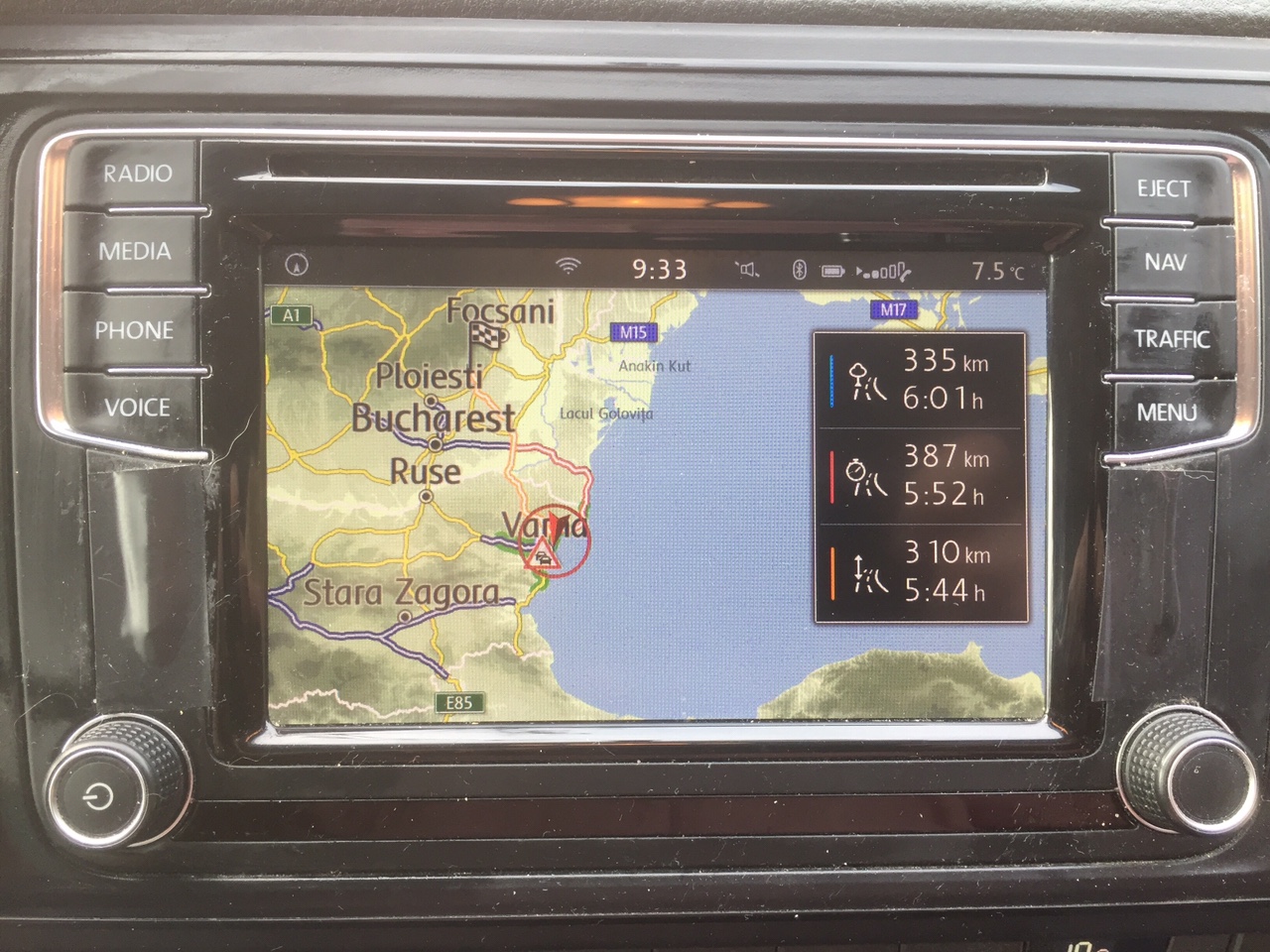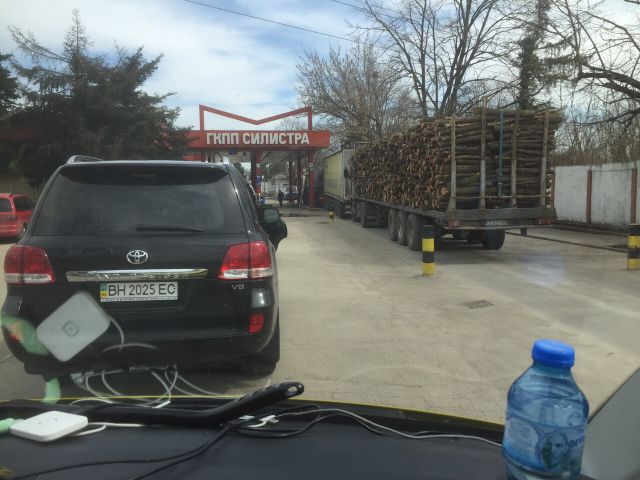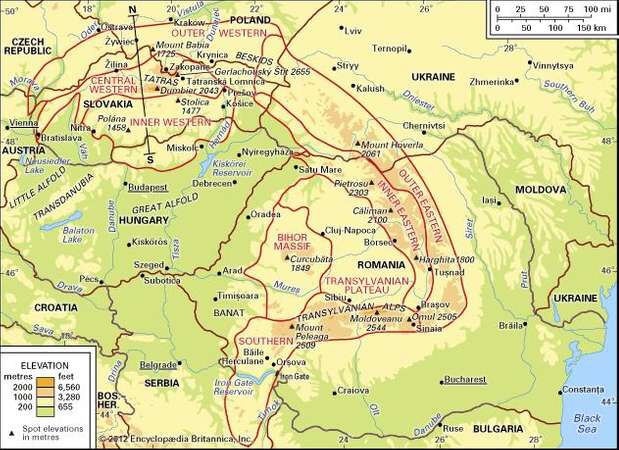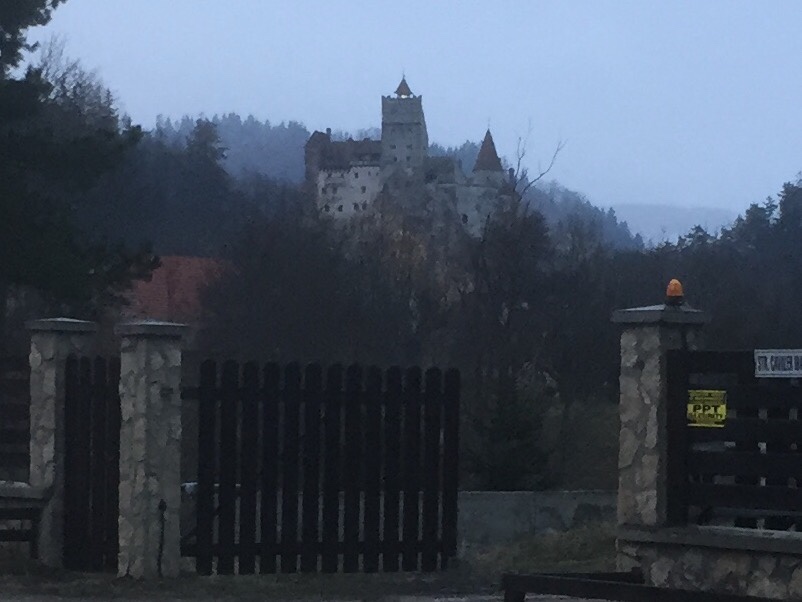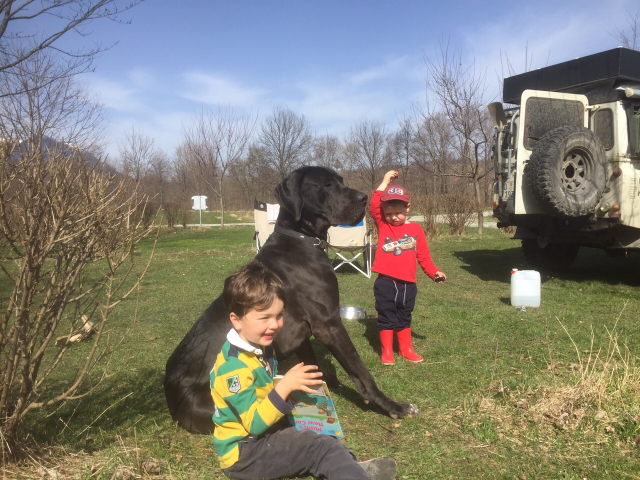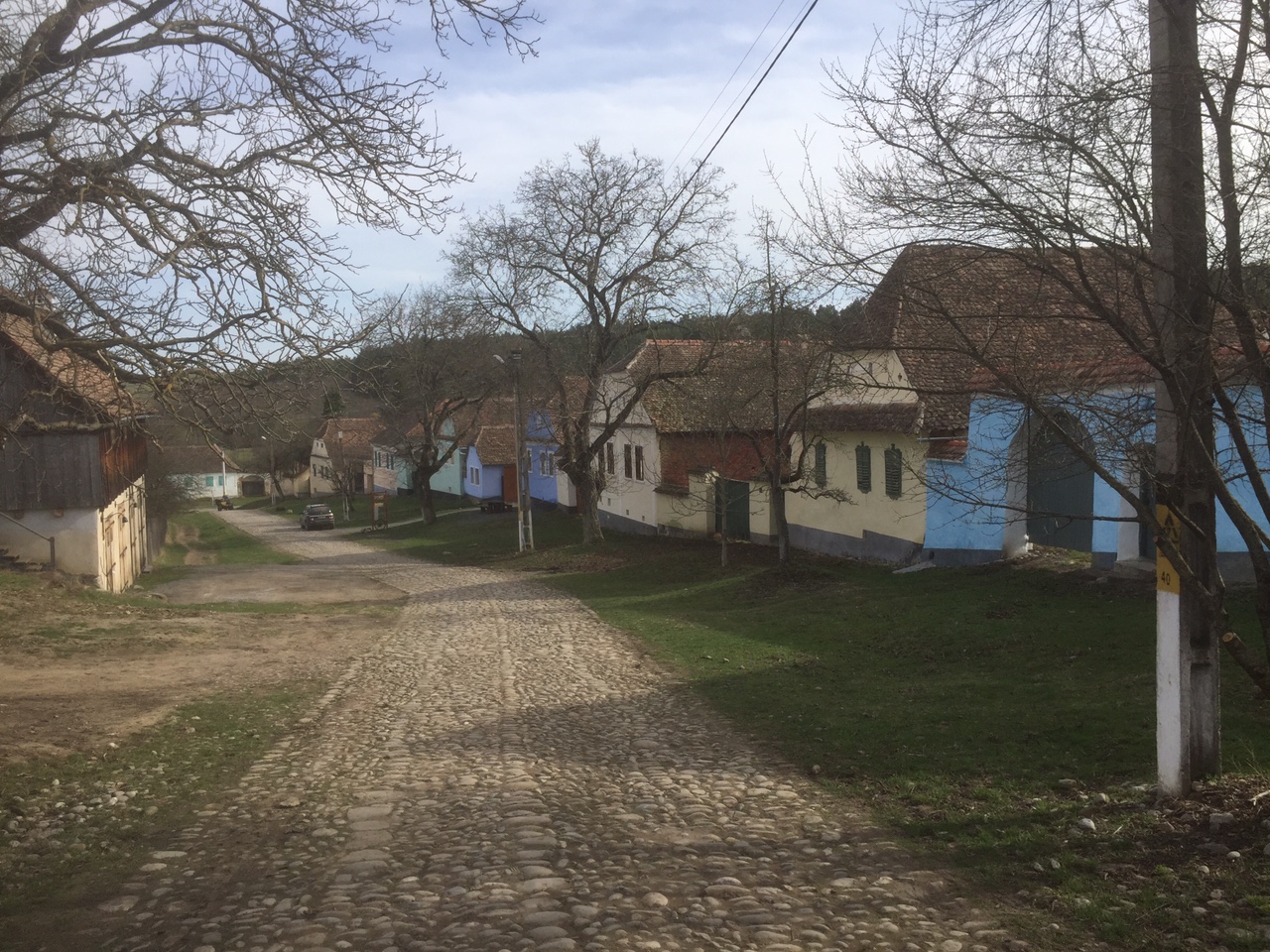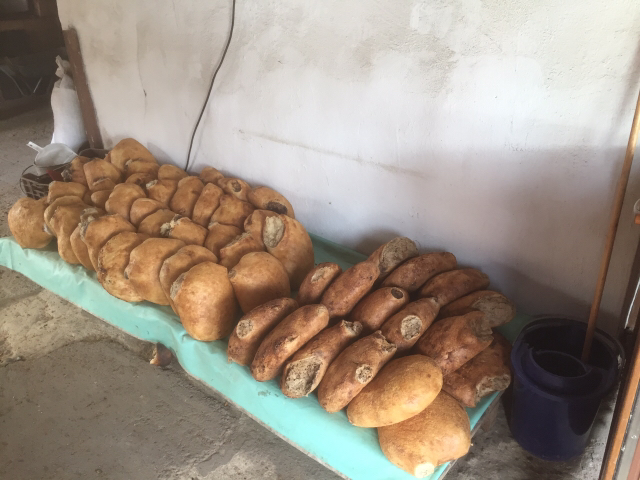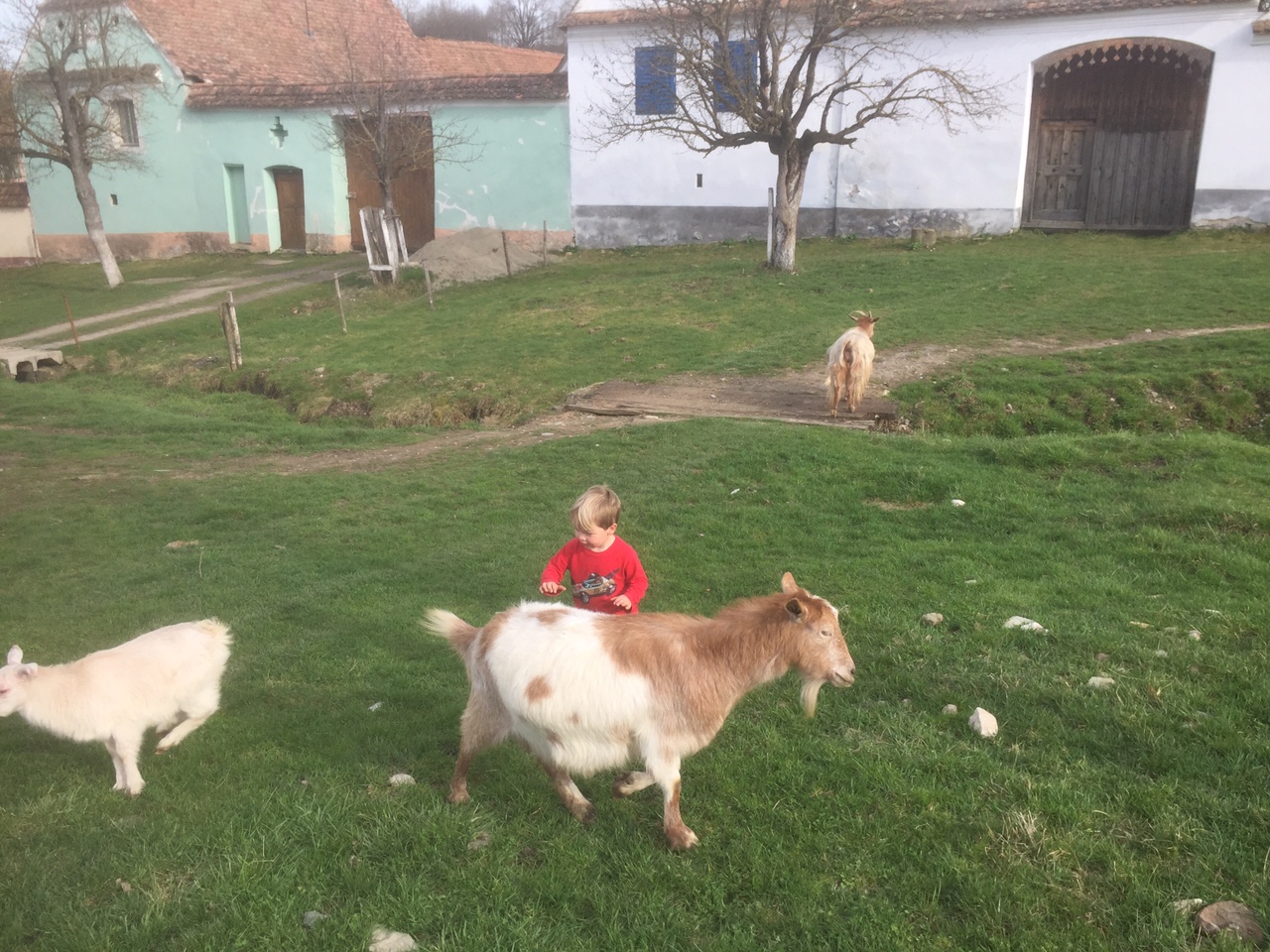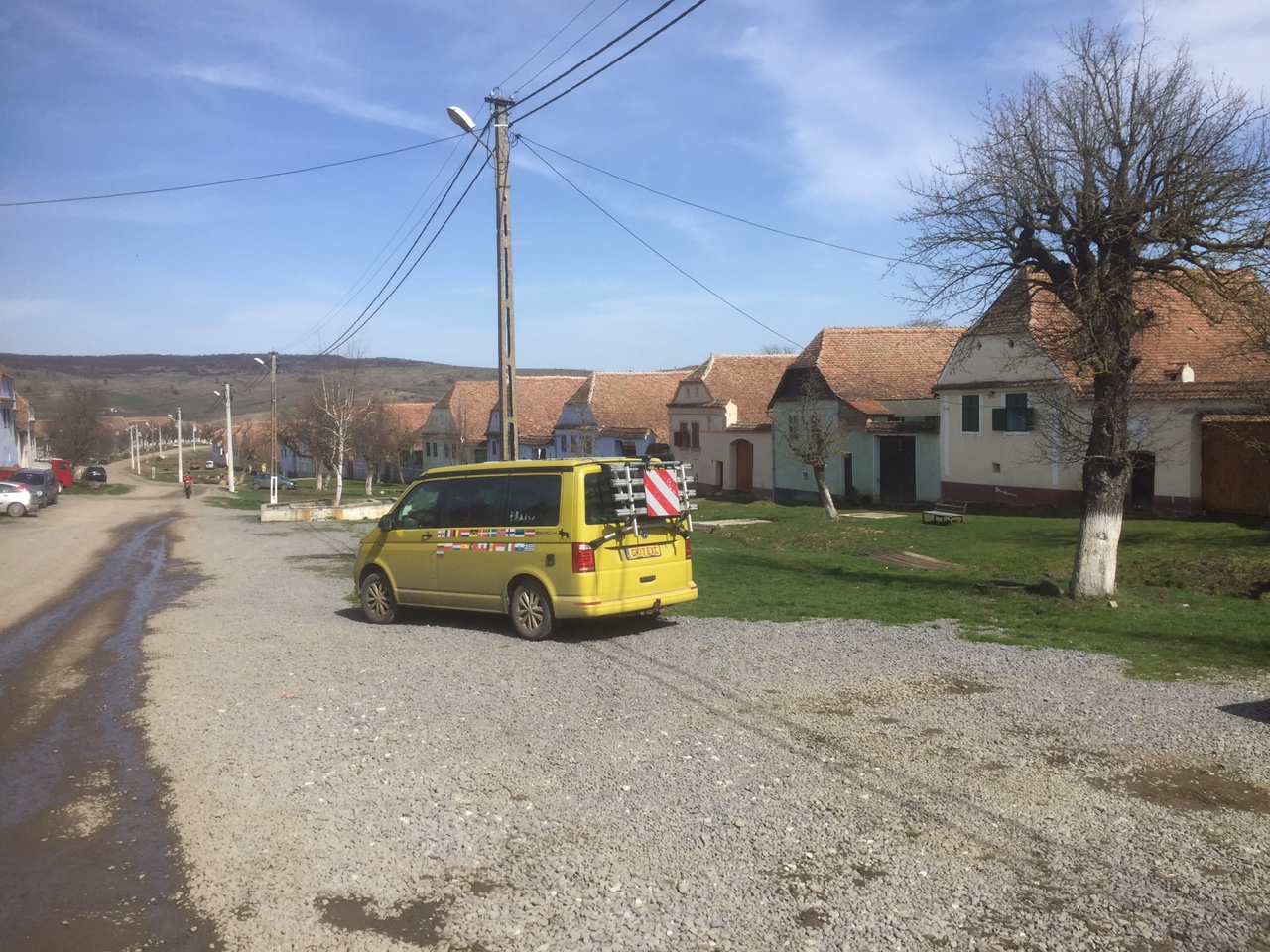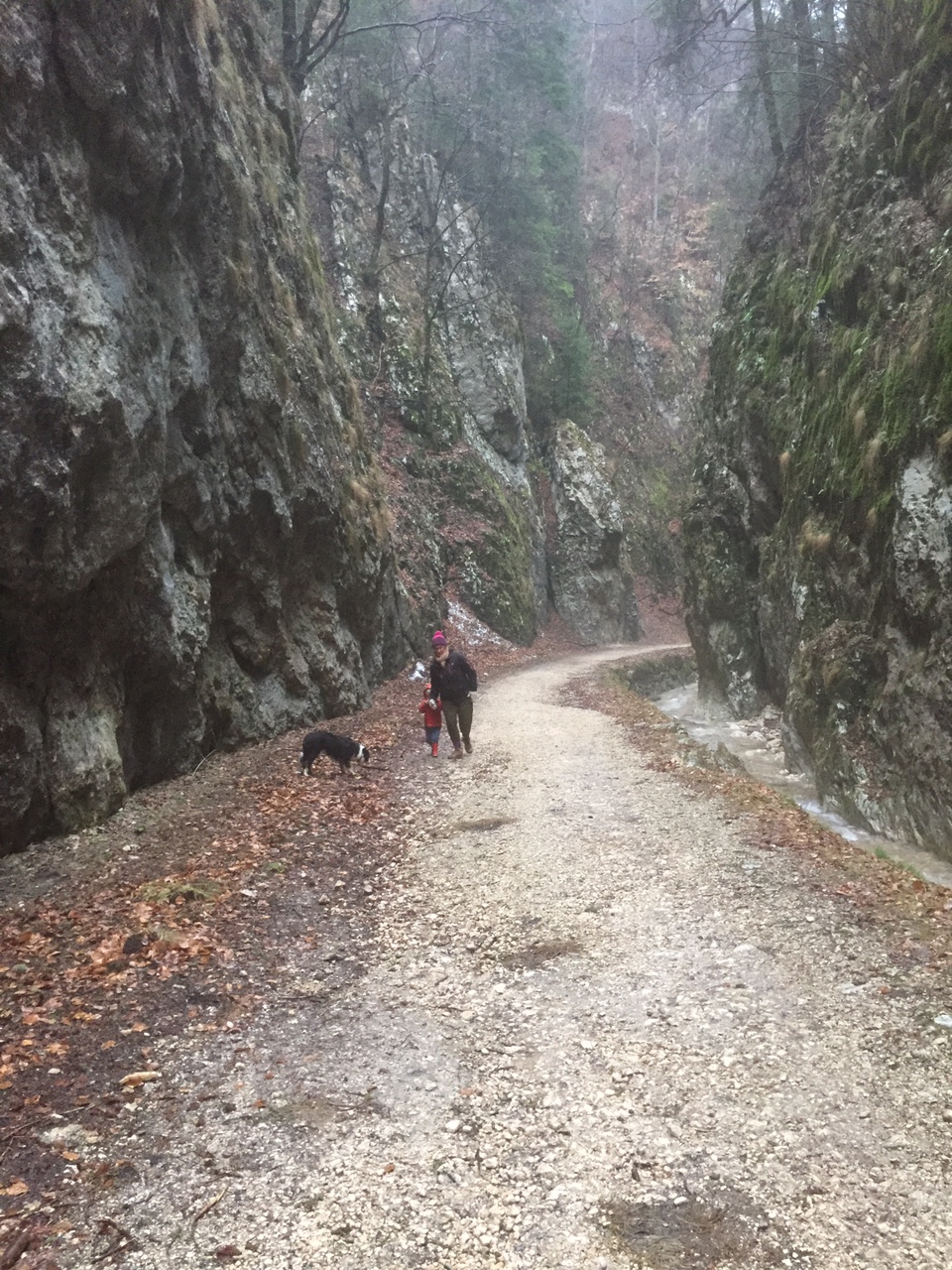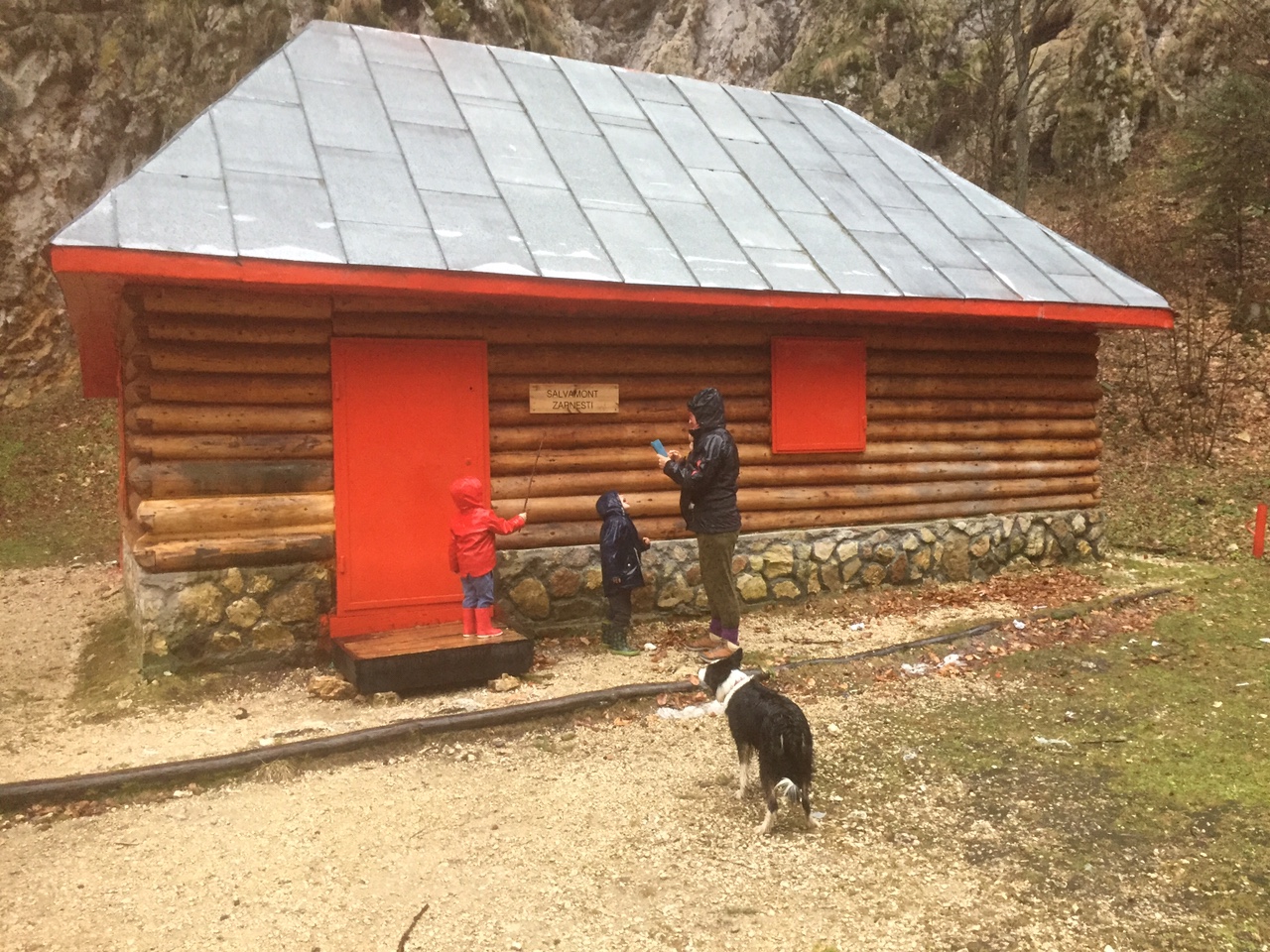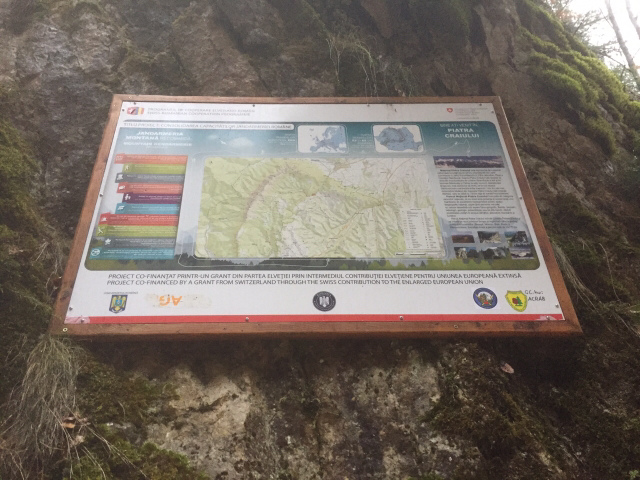Day 277 to 282 Bram
Bram Castle, the home of the late Vlad the Impaler also known as Vlad Dracula. The castle is built on a rocky outcrop at the point where a gorge opens to a wide valley. Its rooms are arranged on many levels around a central courtyard with turrets and towers. It looks dramatic from the outside but has a pleasantly informal and warm feeling inside.
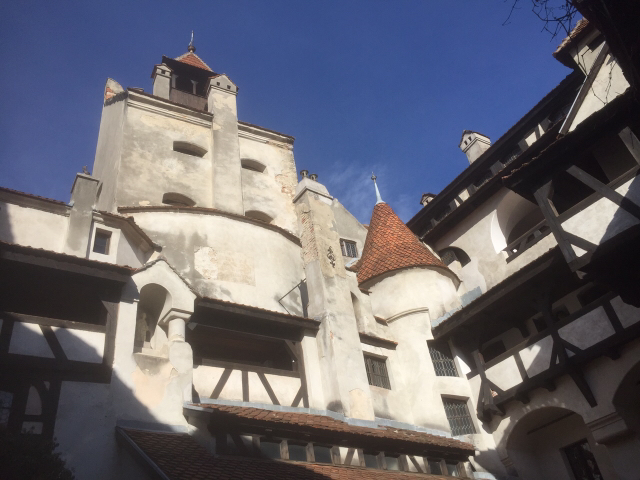
Within the castle an entire tower was devoted to a display of instruments of torture. Children were strictly forbidden from this room - but I was curious. While Clare took the boys for an ice cream I had half an hour to satisfy my curiosity. Two things in particular struck me: a good torture prolongs an agonising death; psychological torture, such as watching a fellow convict die the agonising death you are about to endure is as effective as the physical torture. Vlad's favoured method, ramming a blunted and greased stake into the victim's anus, then setting the stake upright and allow wriggling and gravity to do its job over a number of hours or days is as effective as any method. Perhaps the more fortunate would-be victims managed to gnaw through their tongues and died of blood loss before the sentence could be meted out.
Back at the campsite there was much excitement at the arrival of two German men in a Land Rover with their puppy. Excitement from the boys because they like puppies, and excitement from Meg because she didn't like the puppy getting too close to the boys. Eventually we had to shut Meg in the van to stop her from chasing the poor puppy away from Ben and Jack. The puppy is just 9 months old so has some growing to do.
Transylvania is dotted with Saxon villages, perhaps the best known is Viscri. After the fall of Nicolae Ceaușescu in 1989, Saxons living in Romania were offered refuge in Germany, most took up this offer and the Saxon villages fell into disrepair. The village has since been repopulated with Roma Gypsies who, with the few remaining Saxons, are maintaining the traditional way of life, supplemented by tourism. The village is reached by 7 Km of unpaved road.
Wr parked the van and made our way to the fortified church. Within its walls would be kept the villagers' store of pig fat. Every Sunday, after church, the store would be opened and each family would cut off the fat from their own stock that they would need for the week ahead. Apparently the store maintained a near constant temperature throughout the year.
We left the church by a different exit and walked down the hill. The individual houses all joined by a 2m high wall forming a continuous barrier either side of the street.
Open gateways providing a glimpse into farmyards, shops and workshops. One of these open gates provided us with a jar of honey at an inflated price, but another led to a traditional bakery with wood fired ovens, and a huge wooden vat of rising dough, punched down then allowed to rise again. Each loaf is 2Kg and made with a mixture of flour and potato.
We could not resist the smell of the freshly baked bread.
As we carried on down the street various animals were being herded home, goats, cattle and sheep, all to be shut in behind the gates. Hotses haulling carts loaded with hay gaily clattering over the cobbles. Clusters of children of all ages playing by the road. This was a place time had forgotten.
And then back to our Amarillo, all alone and out of place in this foreign land. We are privileged to have been here.
On the recommendation of the campsite warden we went to walk along a gorge high in the hills. Along the canyon were signs giving various climbing routes up the cliffs either side of the path, and at the top a mountain rescue hut, the eaves of which sheltered us from the rain.
All, apparently, funded by the "Swiss contribution to the enlarged European Union".
And then, to complete our circular route, we had a very tricky drive on unpaved mountain roads, slipping, sliding, crabbing and crawling on mud, ruts and sludge around hairy hairpin bends to Dracula's castle below where we feasted on pizza served by a man who learnt English living in Crawley working by heaving bags into aeroplane holds. Why did he return to Romania? "Because I love my country." We can understand why.
We have also spent much time on the campsite. Orthodox Easter is this weekend. The campsite opened for the season the day before we arrived, and for a night we were alone, a German couple came and went, then the Bucharestians arrived for the Easter break, generous and interested. Eager to share. We were handed a plate of pig fat, pig skin, garlic marinated pig fat and onion. While I sampled the fats, Jack enjoyed the onion.
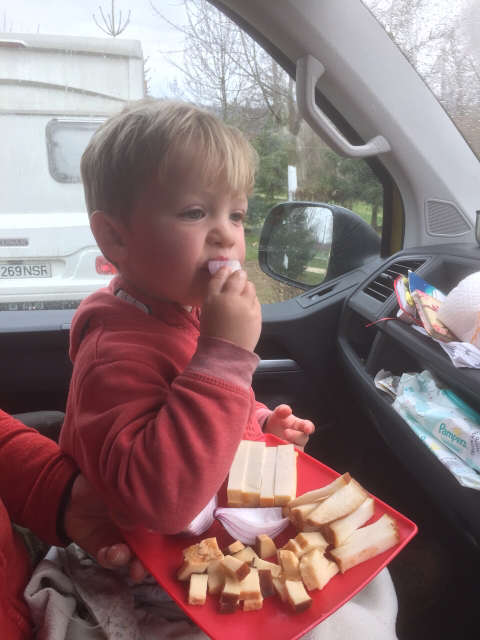
So much have we enjoyed Transylvania that we have remained here a week, nearly twice the length of our intended stay of three days and four nights. The boys have enjoyed playing with the Romanian children and we have enjoyed chatting to their Romanian parents. The one shock was the Campsite owner who turned up on Thursday. He looks back with nostalgia to the days of Ceaușescu when everyone had jobs, the sick were cared for and the elderly had proper pensions. And what of the orphanages? "Those weren't Romanians, they were gypsies abandoned by their parents". A Brexit supporter, he gives an example of Romanians who fly bi-weekly to Luton, sign on to claim UK benefits then fly home the same day. His wife is Dutch and together they have created a very happy campsite with good basic facilities.
Follow my blog:
www.au-revoir.eu



